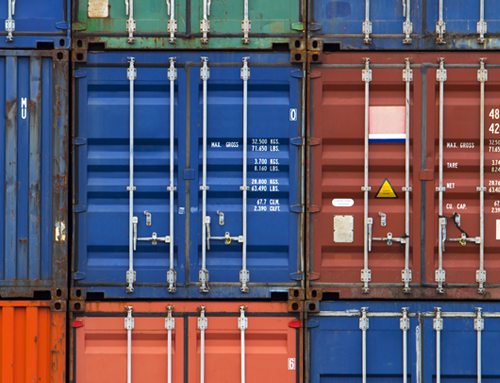Ref: In re: World Imports Ltd. et al. 15-1498 (3d Cir. April 20, 2016)
In this recent decision of the US Court of Appeals for the Third Circuit, the NVOC claimed a contractual lien over goods in transit for all debts owed by a bankrupt importer (almost $1.5 million). The bankrupt argued that the maritime lien was specific to charges owing on goods in the NVOC’s custody (less than $500k) and that any right of lien did not survive delivery.
Facts
OEC provided transportation arrangements for World Imports Ltd. (WIL), a wholesaler of furniture. WIL had entered into an Application for Credit with OEC which allowed a lien on goods “as security for any existing and future indebtedness” and provided that this lien “shall survive delivery or release of any specific property”. OEC had published these conditions with the Federal Maritime Commission and also reprinted them on their invoices.
On 3 July 2013 WIL filed for bankruptcy protection under US law. OEC filed a motion for relief as a secured creditor, claiming a promissory maritime lien on goods in OEC’s custody for the entirety of WIL’s $1,452,956 trade debt. At the time OEC estimated they had possession of approximately $1,926,363 worth of WIL’s goods.
WIL resisted this motion, and the Bankruptcy Court ordered OEC to deliver the goods to WIL and for WIL to pay the specific freight and demurrage charges owing on the goods so delivered, which totalled only $458,251. OEC did not seek a stay of the Bankruptcy Court’s order, but appealed to Divisional Court for an order that WIL pay the full amount outstanding or provide replacement lien assets for those delivered up. The Divisional Court upheld the Bankruptcy Court’s decision, holding that OEC did not hold a valid maritime lien on goods delivered prior to the 3 July petition into bankruptcy date.
Decision
A traditional maritime lien is lost upon unconditional delivery of the goods. However, because it would be impractical to require that ship owners maintain their liens only on undelivered goods, there is a presumption that carriers do not unconditionally waive their rights of lien on delivery. While there was no evidence supporting the proposition that OEC intended to waive its additional contractual lien rights, there was ample evidence by way of credit agreement, published tariff, and numerous invoices, that OEC intended to preserve its right of lien for both current and future indebtedness.
WIL argued that OEC waived its liens through unconditional delivery and then intended to revive those liens through contract alone. This court disagreed with this opinion, saying:
We conclude that OEC did not waive its previous liens but rather agreed with World Imports in advance that such liens would survive delivery and would be applied to any of World imports’ goods currently in OEC’s possession. On that foundation, we hold that their agreement to extend the liens is enforceable…there is no internal contradiction in recognizing a lien as a creature of maritime law that, once created by operation of law, may be extended or modified by agreement of the parties.
The court also considered the issue of potential of harm to third parties if a maritime lien on goods survives delivery. In addition to the “real and immediate harm of depriving OEC” of their rights to monies owed on delivery of those goods, three factors were considered:
1) OEC’s contract provisions that extended their maritime liens mitigated this concern because were “unambiguous” and printed in a published document.
2) Third-party risk is inerrant in all maritime liens—whether for current charges or past charges. A consignee that fails to meet its obligations to a carrier for current charges interferes with third-party receiving those goods. OEC’s lien, although extended from goods already delivered, “was still, at bottom, a possessory lien over goods that had not yet entered the stream of commerce” OEC was not trying to reclaim goods they had already delivered but was extending those liens to current goods. The fact that the lien OEC held was for current and past charges did not increase potential third-party harm.
3) WIL argued that commerce would be hindered by allowing a shipment “to be held hostage” for amounts owed on prior shipments. The Court considered on the contrary the many shipments that OEC had not held against current debts, although entitled to do so, in reliance on the parties’ agreement extending the lien in goods in OEC’s custody to all charges. In the result, the agreement had the effect of aiding, not hindering, the underlying commercial activities.
The Circuit Court did not replace the District Court’s decision with its own, but rather remanded the decision back to the District Court to craft “relief appropriate to its valid maritime liens”.
Comment
This case is of particular interest to freight forwarders and NVOC’s as it serves as a strong endorsement of contractual lien provisions, like OEC’s, that are frequently incorporated into contractual or standard terms.
The CIFFA Standard Trading Conditions, for example, provide at paragraph 18 that:
“All goods (and documents relating to goods) shall be subject to a particular and general right of lien and right of detention for monies owing either in respect of such goods, or for any particular or general balance or other monies owed…”
The 3rd Circuit Court has recognized that such provisions are not onerous or punitive, but rather enable commerce by permitting prompt delivery of goods that are subject to valid liens for current charges in reliance on the extension of the lien over other goods and documents still in the NVOC’s custody possession to cover the value of the lien in the goods delivered up without payment.
The case is also a reminder of the importance of communicating and documenting Standard Trading Conditions or Tariffs. Certainly the Court considered the clear establishment by credit application, the publication by tariff, and the reminder by invoice both in considering the intent of the parties in forming the contract and in mitigating the potential damage that the extension would have on third parties. Where terms extending the right of lien in cargoes to past and future general charges owing are clearly communicated and agreed, they will be enforceable.
Finally, it is interesting from a legal scholarship perspective to note the importance of commercial efficacy to the Court’s decision. The NVOC argued successfully that the provisions facilitated commerce overall, and were crafted to minimize potential impact on downstream third parties. Although each case is decided on its own facts, it is certainly possible that if the NVOC had failed in persuading the court that the provisions were economically efficient it would have failed also in its bid to extend its lien rights by contract, in spite of the clearly agreed terms.



